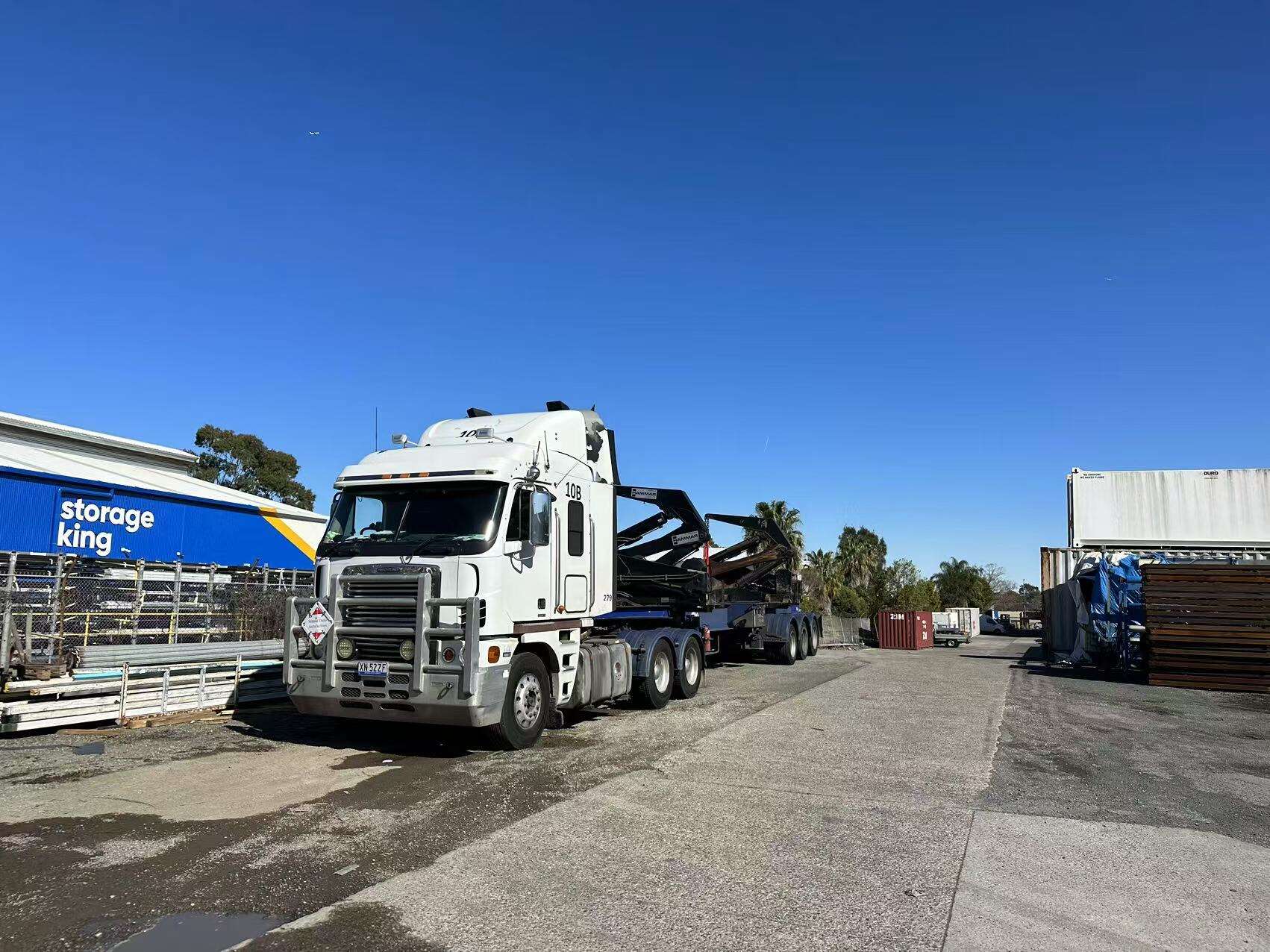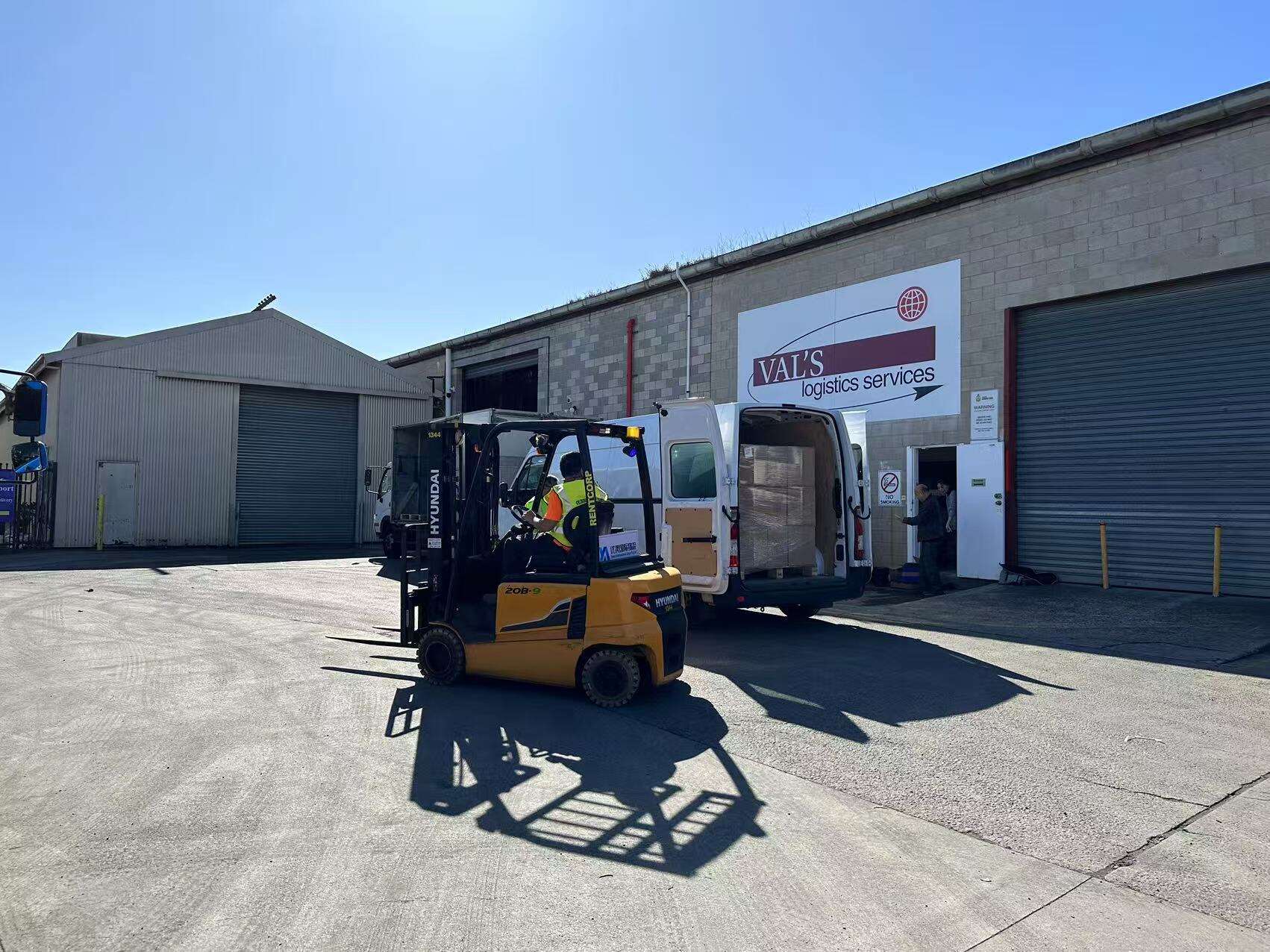Advanced Route Planning and Optimization Strategies
Package Volume Optimization for Efficient Load Management
Getting better at packing volumes really matters when managing loads in logistics work. Companies nowadays often rely on special software to figure out how big packages are so they can fit more stuff into trucks and vans. Think about it this way: businesses arrange boxes inside transport vehicles to squeeze in everything possible without breaking anything during transit. Some smart systems even learn from past shipments to guess what size packages will come next and adjust how things get loaded accordingly. Studies show that proper packing can cut down on logistics spending somewhere around 30 percent, which makes a real difference in profits. Freight forwarders and international shipping companies especially benefit from adopting these kinds of tech solutions because they save money on operations while still delivering goods faster and more reliably to customers worldwide.
Real-Time Data Integration for Dynamic Routing Adjustments
Real time data integration makes a big difference when it comes to dynamic routing in logistics operations. Companies are now using all sorts of IoT devices to collect immediate information on traffic jams and weather patterns, which helps them change delivery paths on short notice. GPS tracking adds another layer here since it keeps updating constantly and lets managers tweak their plans as situations develop. These tech tools allow businesses to respond fast when something goes wrong, like when roads get closed suddenly or storms hit an area, so they can keep moving goods efficiently without major delays. Logistics professionals have seen numbers showing that making these kinds of last minute route changes actually improves on time deliveries by around 20 percent or more. For air freight specifically, getting this kind of real time info into daily operations has become essential for keeping services reliable and customers happy with consistent performance.
Driver Feedback Loops Enhancing Delivery Precision
When companies start incorporating feedback from drivers into their logistics operations, they tend to see much better delivery accuracy. Setting up reward systems where drivers can flag problems and propose route changes creates an atmosphere where everyone wants to keep getting better at deliveries. Many firms run regular training workshops showing drivers how their input affects key performance indicators like on-time deliveries and fuel consumption. Drivers know their routes inside out, so listening to them often leads to smarter paths through traffic jams and fewer missed stops. The numbers back this up too companies that have implemented proper feedback mechanisms typically cut down delivery mistakes by around 15%. For businesses looking to streamline their logistics processes and manage inventory more effectively, making room for driver opinions isn't just beneficial it's becoming essential for staying competitive in today's market.
Leveraging Technology for Real-Time Logistics Management
Automation and AI in UPSâs Delivery Ecosystem
UPS has been transforming its delivery operations through automation and artificial intelligence, which helps get packages where they need to go faster and cheaper. When they started using AI for sorting packages, things got better because there were fewer mistakes made by people and everything moved quicker through the system. Warehouses now rely on robots too, cutting down on the amount of work employees need to do manually while getting more done overall. According to various industry analyses, companies implementing these kinds of automated solutions often see their operating expenses drop around 20 percent. That kind of savings makes a big difference in staying competitive within the logistics sector where margins can be razor thin.
UPS Quantum View: Transparency in Shipment Tracking
The UPS Quantum View system takes shipment tracking to a whole new level with its transparent approach and instant notifications that really boost customer happiness. With this tool, folks can actually watch where their packages go from pickup all the way through to doorstep delivery, which builds trust and keeps people satisfied. Research shows something interesting too customers who can track their shipments in detail tend to stick with the same shipping company about 30 percent more often. That speaks volumes about how important visibility into package movement is for getting customers back again and again while strengthening what they feel about the brand overall.
AI-Powered Predictive Analytics for Demand Forecasting
UPS has been using AI powered predictive analytics to get better at guessing how demand will change, which helps them manage stock levels more effectively and improves their ability to anticipate what customers want. The company looks back at past sales numbers and shipping patterns to spot those spikes in demand that happen around big events or holiday periods. According to industry experts, companies that implement these kinds of forecasting tools typically experience about a quarter better accuracy in tracking their inventory. This makes a real difference in how resources are distributed across warehouses and distribution centers, keeping products stocked where they need to be when shoppers start looking for them.
Sustainable Practices Driving Efficient Deliveries
Alternative Fuel Investments Reducing Carbon Footprint
UPS has made moving toward alternatives like biodiesel and electric vehicles central to its plan for cutting down on carbon emissions. When they start using these cleaner energy options in their delivery trucks, they're doing more than just helping the environment. They actually save money over time too. Environmental data shows that switching to these alternative fuels can slash emissions by around half. That kind of drop makes a real difference in sustainability goals and helps hit those worldwide carbon targets. What's interesting is how these new fuel types offer benefits beyond just being green. Fuel expenses go down significantly, which matters a lot for a company with so many vehicles on the road. Plus, what UPS is doing now sets an example others in the freight business might follow someday.
Eco-Friendly Vehicle Integration in Last-Mile Logistics
Electric vans and bikes are changing how packages get delivered in cities across the country. When companies switch to these green alternatives, they cut down on exhaust fumes which helps make breathing easier for people living downtown. Some studies show delivery times actually improve around 30% when using electric options instead of gas powered trucks. That makes sense because electric vehicles avoid traffic jams better than regular delivery vans stuck in gridlock. Plus, many city centers now have strict rules about vehicle emissions, making it harder for old fashioned delivery trucks to operate legally. For businesses looking ahead, incorporating electric transport into their delivery networks isn't just good for the environment anymore it's becoming practically necessary as regulations tighten and customer demand shifts toward greener solutions.
Carbon-Neutral Shipping Options for Global Clients
UPS has made sustainability part of its global operations by introducing carbon neutral shipping choices for customers worldwide. When businesses choose these options, they can balance out the carbon footprint from their packages, something many companies are now looking for as environmental concerns grow. What makes this interesting for businesses is that going green isn't just good PR anymore. Companies that switch to these eco friendly shipping methods actually get perks like discounts or special recognition programs, which helps drive adoption across industries. According to market research from last year, around two thirds of shoppers actually care about whether a brand takes environmental issues seriously before making purchases. For UPS, this approach does more than just please customers who share similar values. It puts them ahead of competitors in the logistics game while building long term partnerships based on real world impact rather than just cost savings.
Customer-Centric Solutions for Enhanced Reliability
UPS Signature Required: Secure and Verified Deliveries
When companies require signatures upon delivery, they're actually doing something pretty important for keeping packages safe and reliable throughout the shipping process. These signature checks cut down on lost items significantly because they confirm whether someone actually received what was sent out. Industry data shows that when carriers implement these signature rules, delivery success jumps up around 95 percent according to recent studies from logistics experts. For UPS specifically, this practice helps build trust with customers who want confidence knowing their shipments arrive exactly where intended. While some might find signing for every parcel inconvenient at times, most agree it's worth the extra step given how much damage prevention it offers against theft or misdelivery issues.
Flexible Delivery Windows and Time-Definite Services
The availability of flexible delivery windows along with guaranteed time slots really makes a difference when it comes to keeping customers happy and coming back for more. When shoppers can pick exactly when they want something delivered based on what fits their schedule, it just makes the whole buying process better. What makes all this possible? A lot of behind-the-scenes tech work that keeps track of delivery schedules so everything goes off without a hitch most of the time. Looking at customer feedback, around seven out of ten people say they strongly prefer getting choices about delivery timing. That says a lot about why businesses need to keep offering these kinds of options as our lives get busier day by day.
Proactive Communication via Tracking Notifications
UPS knows keeping folks in the loop about where their packages are at is really important for building good relationships with customers. When we send out those tracking updates through our system, people get all the details about what's happening with their shipment step by step. The automated alerts work wonders here too, giving customers instant info so they know exactly what to expect next. We've seen time and again that when companies keep communicating like this, customers tend to stick around longer. Some studies even suggest retention rates go up around 25% with these kinds of updates. Beyond just numbers though, regular communication builds trust over time and makes the whole ordering and receiving process feel smoother for everyone involved.
Global Network and International Shipping Expertise
Streamlined Customs Clearance with UPS World Ease
UPS World Ease really helps make customs processing run smoother without all the usual headaches. When packages going to the same destination get grouped together, it cuts down on how long customs takes and saves money on logistics too. Take Oris for example their delivery times dropped quite a bit after customs got faster, which made managing their worldwide shipping operations much easier. Some industry numbers show that when customs moves along without delays, delivery schedules can actually speed up around 15 percent. These kinds of improvements let companies expand into new international markets quicker while keeping operations running well and customers happy. Want to know more? Check out the UPS World Ease details here https://www.ups.com/us/en/services/details/world-ease.page
Air Freight Capabilities for Time-Sensitive Shipments
UPS air freight provides special shipping options when customers need things delivered fast around the world. Time sensitive packages get there on schedule thanks to these services. For businesses racing against the clock, air freight makes all the difference. Some numbers show it gets stuff delivered three times quicker compared to driving or trucking. Companies relying on quick delivery need this kind of speed to keep running smoothly while satisfying customers who want products right away. Using air freight lets businesses stay ahead in the market game and opens doors to selling internationally without second guessing if shipments will arrive on time. Learn more at UPS Air Freight Services website here: https://www.ups.com/us/en/services/freight/air-freight.page
Strategic Partnerships in Freight Forwarding Services
The partnerships UPS has built really boost its ability to handle international shipping all around the world. Working with other companies lets them provide full freight forwarding services that make moving goods through different countries much easier. Looking at actual examples shows how these business relationships have made things better for customers and helped operations run faster. Most industry folks agree that when companies work well together, they tend to grow their service options by about 20 percent give or take. Through these connections, UPS expands what it can do while giving businesses dependable ways to get their products shipped internationally without headaches. Want to see what else UPS offers? Just check out their website for details on freight forwarding services.
Comparing UPS and DHL International Shipping Efficiency
Looking at how efficient UPS and DHL International Shipping really are, both companies definitely bring something valuable to the table, though many people find UPS generally more dependable. The numbers from customer feedback and actual performance data show UPS tends to deliver packages on time more frequently than DHL does. For companies racing against tight deadlines, this kind of dependability matters a lot. What makes UPS stand out? Well, their extensive worldwide network combined with solid logistics systems gives them an edge in getting things where they need to go. They've been investing heavily in improvements over recent years too, which means their services keep getting better and quicker when compared to other players in the market like DHL.
Cost-Effectiveness in Freight Shipping Across Markets
UPS has built a strong edge in freight shipping through smart pricing that works well across different markets, giving it an upper hand over many competitors. While others stick to one-size-fits-all models, UPS actually adjusts its rates based on what different customers need, keeping costs reasonable without sacrificing service quality too much. Research shows companies that offer good value shipping tend to attract around 30% more clients, which explains why UPS continues to grow its customer roster. The company's pricing strategy really pays off in areas where businesses are watching their budgets closely, making UPS a go-to choice for small operations and large enterprises alike when money matters most.
On-Time Delivery Guarantees as a Market Differentiator
UPS's ability to deliver packages on time remains a key reason customers stick with them instead of switching to other carriers. When shipments show up right when they're supposed to, it builds trust and keeps people happy. According to recent research, around 8 out of 10 shoppers actually pick their preferred shipping company based largely on whether deliveries come in on schedule. Meeting those expectations day after day helps UPS create real value for clients while building lasting relationships with both small businesses and everyday consumers. What makes UPS stand out in such a competitive field? Their unwavering focus on getting things where they need to go without fail continues to establish them as one of the top names in logistics today.
Table of Contents
- Advanced Route Planning and Optimization Strategies
- Leveraging Technology for Real-Time Logistics Management
- Sustainable Practices Driving Efficient Deliveries
- Customer-Centric Solutions for Enhanced Reliability
- Global Network and International Shipping Expertise
- Comparing UPS and DHL International Shipping Efficiency
- Cost-Effectiveness in Freight Shipping Across Markets
- On-Time Delivery Guarantees as a Market Differentiator




